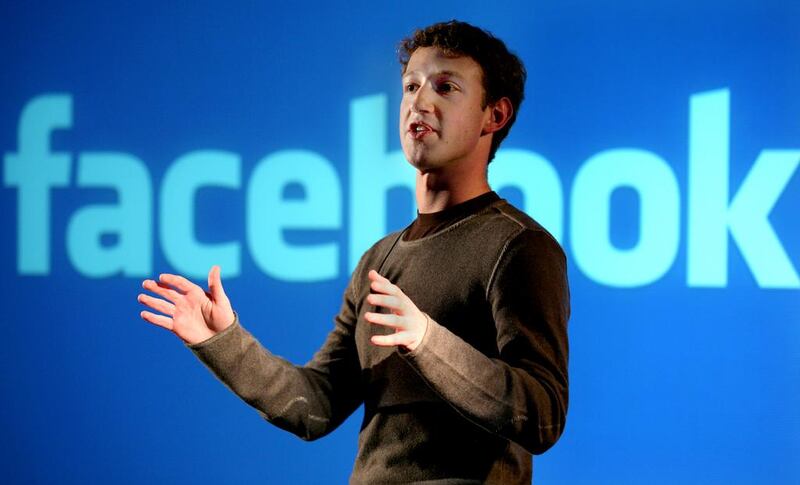Facebook will no longer be cool next year. The world’s leading social networking service is already beginning to show its age.
In its November earnings statement, Facebook admitted a fall in its number of daily users, especially among the key teenage market.
As older generations become familiar with social networking, younger users increasingly find that their parents are able to view material they had posted with only their own peer group in mind. This is encouraging younger Facebook users to switch to more private messaging services such as WhatsApp and WeChat.
According to Mobile Marketing Magazine, WhatsApp already has 350 million users globally, making it the world’s biggest messaging service. Other new services now eating Facebook’s lunch are also specifically for smartphones.
Snapchat, a photo messaging service developed by two students at California’s Stanford University solves a major problem many users have with Facebook. While pictures of last night’s crazy student party might be hilarious while you are still at university, they may not seem so amusing when they reappear at a job interview 10 years later. Snapchat enables users to set a time limit for precisely how long the chosen recipients of their uploaded photographs and videos can view them.
Facebook’s consumer-led approach enabled it to defeat its social networking rival MySpace, which had been bought by News Corporation, and tried to impose its own business models on users.
Now Facebook, originally designed for laptops, must face a big challenge from new social networking rivals whose services are specially tailored for smartphones and a younger generation.
DVDs
Next year will be the year when people decide to junk their DVD movie collections.
Even Blu-Ray discs, a superior form of DVD, are now looking like old technology as movie lovers switch to free online services such as BitTorrent or even pay for them via services such Apple’s iTunes and download and stream movies for free over the internet.
DVD technology is two decades old and beginning to show its age. An increasingly tech-savvy generation of movie fans regard DVDs as an awkward, inflexible and old-fashioned way of uploading software. The digital information stored on a disc can be stored far more effectively on a computer hard drive.
Many tech-savvy consumers have been linking their laptops to flat screen TV monitors for years. The sheer space taken up by a home library of DVDs complete with individual cases is also off-putting.
There is also no longer any real need for individuals to own a personal movie library. While the US may try to impose its own copyright rulings, vast ranges of movies are nevertheless available worldwide for free over the internet.
Internet cafes
Once the symbol of the new digital age and hip places for young Web surfers to hang out, internet cafes are being deserted by a new generation of smartphone users.
The fall in the price of laptop users was the first nail in the internet cafe’s coffin. Light portable laptops and even lighter and more portable net books meant surfers could simply plug into an electric socket in any coffee shop.
Large chains of coffee shops such as Starbucks soon began to liberally sprinkle power points around their premises to encourage laptops users to stay a while so that they would buy more coffee and cakes.
Soon, increased battery life of up to 10 hours between charges meant surfers could open up their laptops in all kinds of premises, even those not offering use of power points.
Smartphones running Google’s Android software or Apple’s operating system offer screen-based internet access in the same way laptops do. They also offer far greater portability, allowing users to access online services when walking down the street, dispensing with the need for internet cafes.
Passwords
If you have been unable to access your laptop or been locked out of your email account because you forgot your password, help is on the way.
2014 will be the year in which people will start to be able to forget about passwords. Some laptops makers have been using thumbprint biometric ID as standard for several years and smartphone makers are following suit.
According to industry sources, biometric eye scanning technology is also being incorporated into laptops and smartphones via technologies such as Apple’s Touch ID.
But 2014 will see the introduction of biometric identification technologies that will soon make even fingerprint and eye recognition appear crude.
Access to smartphones, laptops and all kinds of IT will next year be provided by a blink of the eye or a simple voice command such as “Open Sesame”.
Mid-range digital cameras
Photographers have seen traditional cameras replaced by digital cameras. These already use technologies such as GPS chips and Wi-Fi to enable photographers to tag pictures with their time and location before uploading them to the internet where they can be stored or viewed.
Film has long been relegated to die-hard darkroom enthusiasts or professional photographers.
While the price of top-end professional cameras has remained more or less constant in real terms, the price of consumer versions of digital cameras has been falling sharply. This has had the effect of introducing digital photographer to an increasing number of amateur snappers.
But the flip side of this equation is that mobile phone makers are now incorporating the latest digital photography into their new ranges of smartphones.
This level of digital photography will be introduced by other competing smartphone makers in 2014, enabling smartphone users to take the kind of pictures that only professional photographers were able to shoot.
business@thenational.ae





